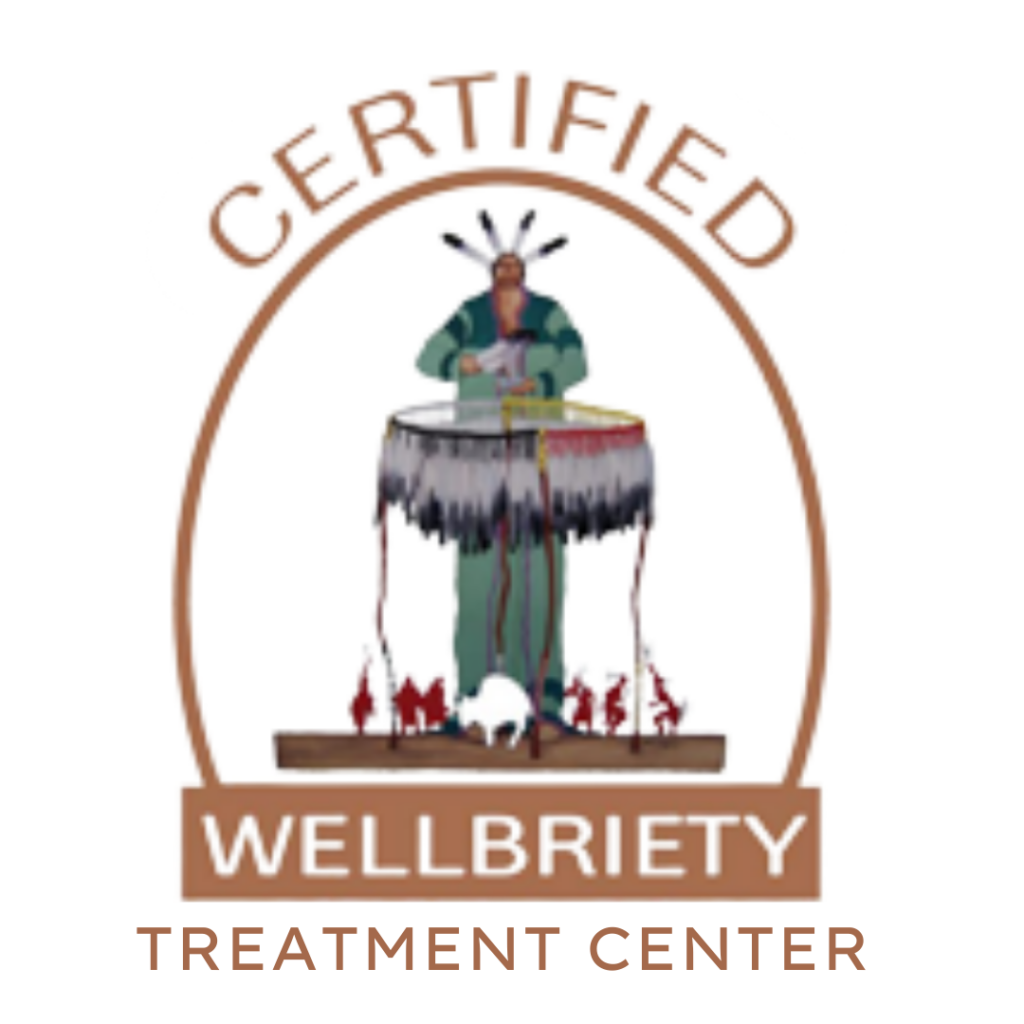Oxycodone Addiction
Oxycodone addiction poses a significant and complex challenge in the realm of substance abuse. As a potent opioid analgesic, oxycodone is commonly prescribed to manage severe pain. However, its highly addictive nature has led to widespread misuse and dependence.
From the initial prescription to illicit recreational use, the journey of oxycodone addiction is fraught with potential pitfalls. Exploring the signs, symptoms, and treatment options is crucial in addressing this pervasive issue and assisting those grappling with the challenges of overcoming oxycodone dependency.

What Is Oxycodone Addiction?
Oxycodone addiction, marked by the development of Opioid Use Disorder (OUD), is a complex and serious health concern. This powerful opioid, commonly used for pain management, can lead to dependence and subsequent addiction when misused. According to the Diagnostic and Statistical Manual of Mental Disorders, Fifth Edition (DSM-V), the criteria for OUD encompass various aspects:
- Taking larger amounts of oxycodone or taking it for a longer duration than intended.
- Unsuccessful efforts to cut down or control oxycodone use.
- Unsuccessful efforts to cut down or control oxycodone use.
- Craving or a strong desire to use oxycodone.
- Difficulties fulfilling obligations at work, school, or home due to oxycodone use.
- Continued use of oxycodone despite recurring social or interpersonal problems.
- Giving up or reducing important activities because of oxycodone use.
- Using oxycodone in physically hazardous situations.
- Continued oxycodone use despite awareness of persistent physical or psychological issues caused or exacerbated by its use.
- Developing tolerance, requiring increased amounts for the same effect.
- Experiencing withdrawal symptoms or using oxycodone to relieve or avoid withdrawal discomfort.
Understanding these criteria is essential for recognizing the complexities of oxycodone addiction and facilitating informed discussions around effective intervention and treatment strategies.
If you or someone you know is struggling with oxycodone abuse, please reach out for help today.
What Are the Signs and Symptoms of Oxycodone Addiction?
Oxycodone addiction manifests through a spectrum of signs and symptoms, encompassing physical, behavioral, and psychological aspects. Recognizing these indicators is crucial for early intervention and support:
Physical Signs:
- Constricted Pupils: One of the characteristic physical signs of oxycodone use is pinpoint or constricted pupils.
- Drowsiness and Sedation: Individuals addicted to oxycodone often exhibit excessive drowsiness and sedation, impacting their alertness and overall functioning.
- Nausea and Vomiting: Gastrointestinal disturbances, including nausea and vomiting, can be prevalent among those struggling with oxycodone addiction.
- Craving or a strong desire to use oxycodone.
Behavioral Signs:
- Social Withdrawal: Individuals may withdraw from social interactions, preferring isolation to conceal their drug use.
- Changes in Daily Activities: A decline in performance at work or school, neglect of responsibilities, and changes in routine are common behavioral signs.
- Doctor Shopping: Engaging in the practice of "doctor shopping" to obtain multiple prescriptions or seeking medication from various healthcare providers.
Psychological Signs:
- Mood Swings: Oxycodone addiction often leads to mood swings, ranging from euphoria during drug use to irritability and anxiety during withdrawal.
- Cravings: Intense cravings for oxycodone can drive persistent drug-seeking behavior.
- Denial: Individuals may deny the severity of their addiction, making it challenging for them to seek help voluntarily.
- Denial: Individuals may deny the severity of their addiction, making it challenging for them to seek help voluntarily.
Oxycodone Addiction Facts & Statistics
Oxycodone addiction is a pressing concern in the realm of substance abuse, contributing to a complex web of health and societal challenges. Here are a few key facts:
- Oxycodone is classified as a Schedule II controlled substance due to its high potential for abuse and severe dependence.
- According to the U.S. Department of Justice, over 10 million people in the United States misused prescription opioids, including oxycodone, in 2019.
- The opioid epidemic has led to a surge in overdose deaths, with oxycodone implicated in a substantial portion of fatalities.
- The risk of opioid use disorder increases with prolonged use, and approximately 21-29% of patients prescribed opioids for chronic pain misuse them.
- Opioid-related healthcare and criminal justice costs in the U.S. amount to billions annually, reflecting the extensive impact of oxycodone addiction on various sectors of society.
Why Is Oxycodone Dangerous?
Oxycodone, a potent opioid pain medication, poses significant dangers due to its potential for abuse, dependence, and life-threatening side effects. The drug’s high potency and the euphoria it induces contribute to its abuse potential. Individuals may misuse it by taking larger doses than prescribed or using it without a legitimate medical need.
The danger of respiratory depression is a critical concern with oxycodone use. The drug can suppress the respiratory system, leading to shallow breathing or, in severe cases, respiratory failure, which can be fatal. Overdosing on oxycodone is a genuine risk, especially when combined with other substances like alcohol or benzodiazepines.
Moreover, prolonged use can result in physical dependence, making it challenging for individuals to discontinue use without experiencing withdrawal symptoms. This cycle of dependence, escalating doses, and potential overdose underscores the inherent dangers of oxycodone and emphasizes the need for cautious prescribing and vigilant monitoring in clinical settings.
Self-Assessment: Am I Addicted?
Oxycodone Addiction and Mental Health
Oxycodone addiction not only wreaks havoc on the physical health of individuals but also casts a shadow on their mental well-being. The powerful opioid, known for its pain-relieving properties, can alter the brain’s chemistry, leading to profound mental health implications. Chronic use of oxycodone is associated with an increased risk of depression, anxiety, and mood disorders.
The cycle of addiction often intertwines with mental health challenges, as individuals may turn to oxycodone as a way to self-medicate against emotional pain or distress. Conversely, the consequences of addiction, such as strained relationships and financial difficulties, can contribute to heightened stress and worsen mental health outcomes.
Addressing oxycodone addiction effectively requires a comprehensive approach that not only focuses on breaking the physical dependence but also on addressing the underlying mental health issues. Integrated treatment plans, encompassing therapy, counseling, and support networks, are essential to help individuals navigate the complex interplay between oxycodone addiction and mental health.
Have any questions?
When Do You Need Oxycodone Addiction Treatment?
Recognizing the need for oxycodone addiction treatment involves paying attention to various indicators that signify a struggle with this powerful opioid. Signs such as escalating tolerance, where higher doses are needed for the same effect, and persistent cravings for oxycodone are early red flags. Additionally, social withdrawal, neglect of responsibilities, and unsuccessful attempts to quit signify the need for intervention. When the use of oxycodone starts impacting relationships, work, or daily functioning, seeking professional treatment becomes crucial. Individuals experiencing withdrawal symptoms, such as nausea or restlessness when not using oxycodone, should also consider addiction treatment to break the cycle of dependence.
How Long Is Oxycodone Addiction Treatment?
The duration of oxycodone addiction treatment varies based on individual needs and progress. Typically, treatment involves several phases, including detoxification, therapy, and aftercare. Detox duration depends on the severity of dependence and withdrawal symptoms, while therapy duration varies based on response to counseling and behavioral interventions. Comprehensive treatment plans may span weeks to months, focusing on addressing the root causes of addiction and developing coping strategies. Aftercare, involving ongoing support and relapse prevention, extends the overall treatment duration. Tailoring treatment length to individual circumstances enhances the effectiveness of oxycodone addiction recovery.
Oxycodone Addiction Treatment at Royal Life Centers
Royal Life Centers offers comprehensive Oxycodone addiction treatment, prioritizing individualized care and recovery. The facility provides a range of evidence-based treatments and holistic approaches to address the complex nature of opioid addiction. The treatment programs include medical detoxification, inpatient rehabilitation, and aftercare services. Clients benefit from therapy and counseling, including behavioral therapy and group sessions. Medication-assisted treatment (MAT) may be incorporated to manage cravings and withdrawal symptoms. The supportive and experienced staff at Royal Life Centers collaboratively work with individuals to create personalized aftercare plans, ensuring a smooth transition to sustained recovery. Our facility’s commitment to holistic well-being fosters an environment conducive to physical, mental, and emotional healing.
Oxycodone Addiction Treatment in Washington State
Washington State offers a variety of options for Oxycodone addiction treatment, reflecting a commitment to addressing the opioid epidemic. Treatment facilities in the state focus on evidence-based approaches, integrating medical, psychological, and holistic interventions. Individuals seeking recovery have access to medical detox, inpatient rehabilitation, and outpatient programs tailored to their specific needs. Therapeutic modalities such as counseling, group therapy, and support groups play a crucial role in the recovery process. Washington State emphasizes a comprehensive continuum of care, ensuring ongoing support through aftercare and relapse prevention strategies. The state’s approach underscores the importance of individualized treatment plans, fostering a holistic recovery journey for those grappling with Oxycodone addiction.
If you or someone you love is struggling with addiction issues, Royal Life Centers offers a comprehensive program tailored to your specific needs. Contact us today to speak with a specialist. Your journey to recovery starts today.
If you would like to learn more Other Resources
Are you looking for help with addiction? Let us support you on the path to lasting recovery
Looking for Oxycodone Addiction Treatment Services?
If you or someone you love is struggling with oxycodone addiction, please reach out to us to find out more about how our oxycodone detox services can help. We work with most private insurance policies and we have affordable self-pay rates if you do not have insurance. Give us a call and we will figure out the best treatment plan for you or your loved one.
Because We Care.

Would you like more information?
If you or someone you know has a substance use disorder, we hope you’ll begin your journey with us at Royal Life Centers.
Change your life with one call.
We can help.


















